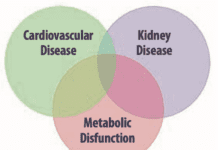A. Nicola M. McKeown, PhD, director of the Friedman School’s Nutritional Epidemiology Program and a scientific advisor to the Whole Grains Council, answers: “Some fundamental differences do exist between sweet corn and popcorn – sweet corn is classified as a vegetable, while popcorn is a whole grain. The timing of harvesting sweet corn is important to ensure ‘sweetness,’ but this is not the case for popcorn, which can be left to harvest for as long as possible in the fields. This difference in harvesting contributes to a difference in starch content, with the sweet corn being much higher in starch than the popcorn.
“According to the USDA’s Choose MyPlate website <www.choosemyplate.gov>, one cup of cooked sweet corn counts as one serving of vegetable, while three cups of popcorn count as a serving of whole grain. While both provide the same amount of dietary fiber (four grams per serving), the starch content of the sweet corn is 30% higher than that of popcorn.
“Starchy vegetables (such as potatoes, peas, acorn squash, sweet corn) can be part of a healthy diet, provided you pay attention to how often you consume them and the portion size. Enjoying a small ear of sweet corn in the summer contributes to your vegetable intake, but, in general, non-starch vegetables (such as broccoli, spinach, salads) contain fewer calories and fewer carbohydrates, which is important for people with diabetes to consider.
“Popcorn is an excellent snack for you to incorporate into your diet as you try to reach the goal of making at least half of the grains that you eat whole grains. As with any dietary change, substitution is key, so switching out potato chips for popcorn will deliver that much needed dietary fiber! However, be wary of store-bought popcorn – much of it contains a lot of added saturated fat and salt, which means many commercial popcorn brands are little better than chips. Read labels carefully, and choose popcorn with no (or very little) added fat or salt. As well, don’t fall into the habit of topping your home-popped popcorn with melted butter and added salt!”























